Who Is Behind The 50 Thousand Votes against "LGBT Propaganda"?
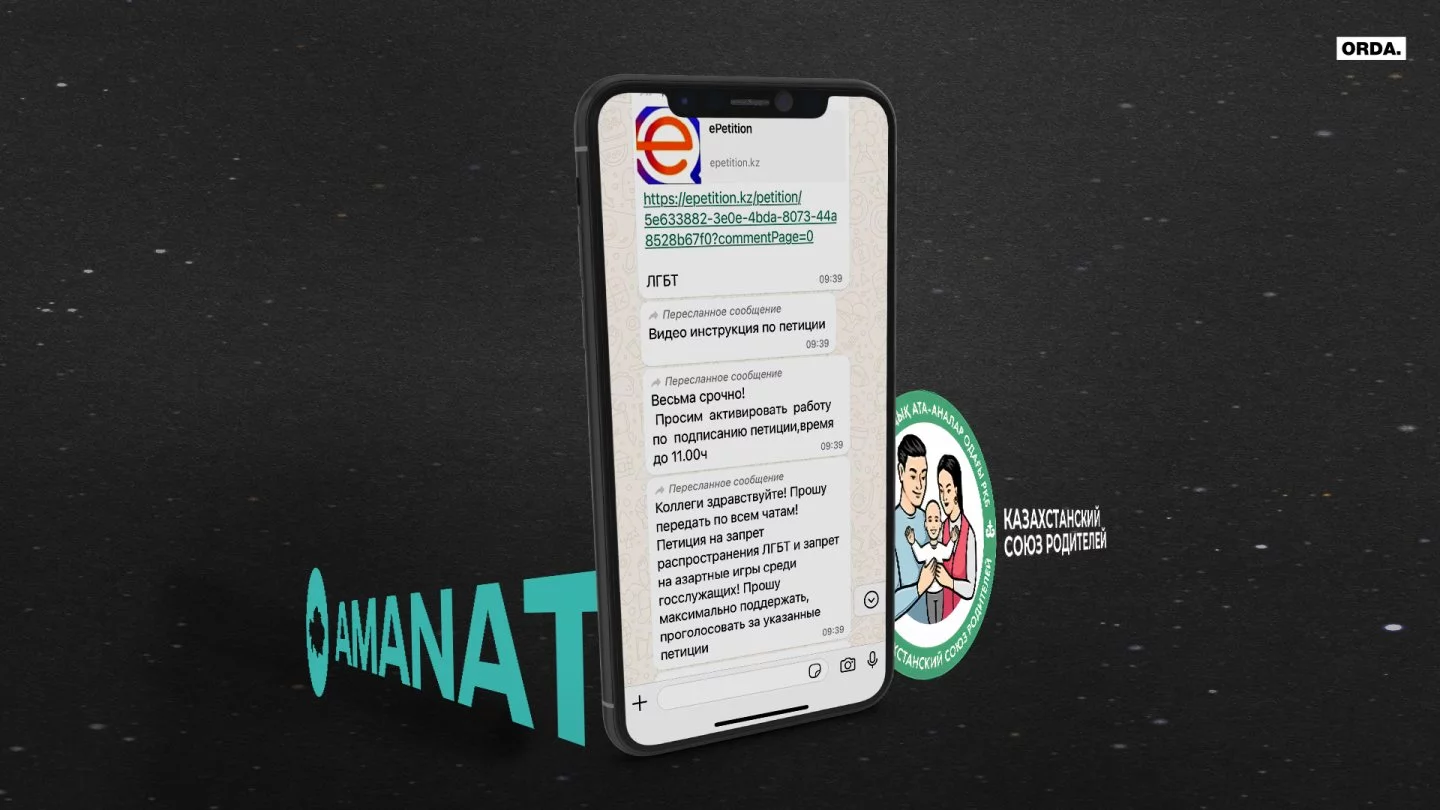
The petition “For a ban on LGBT propaganda” appeared on the ePetition portal on May 29. And on June 9, it collected the required number of votes for consideration and went to the Ministry of Culture. Meanwhile, another petition for the abolition of a single time zone was created on April 22, and 50 thousand were collected on June 7. Activists found out that administrative resources factored in. Orda.kz shares the details.
Messages in Schools
We actually received messages asking us to sign this petition, it was a message in a group chat for teachers. And it was sent by one of the teachers who is responsible for party activities, said Nat (name changed).
The young woman viewed the message negatively but did not write anything in the chat: “mostly out of fear that many unwanted questions would arise.”
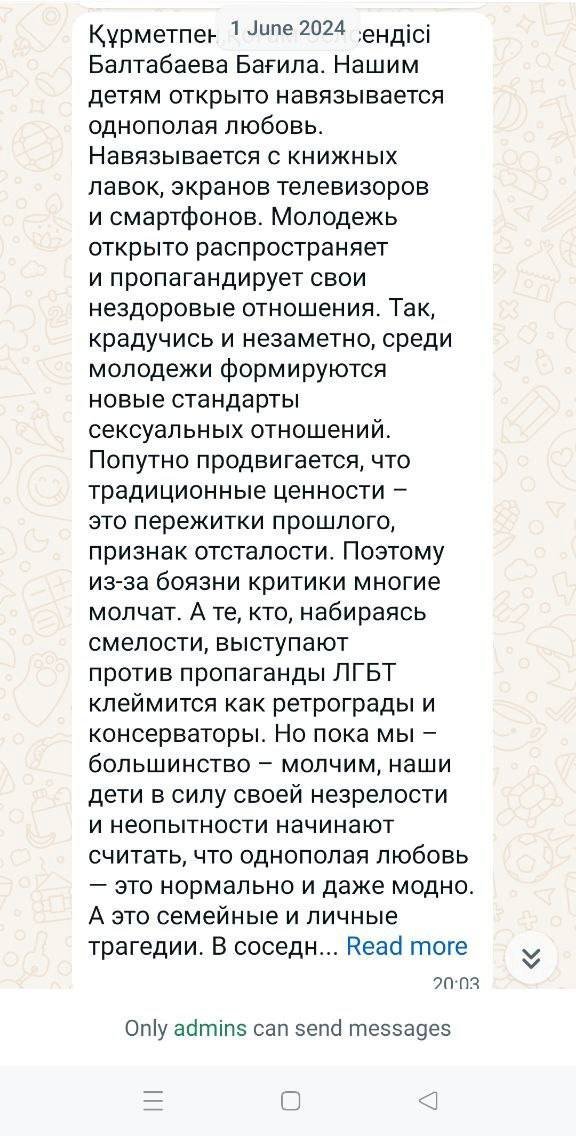
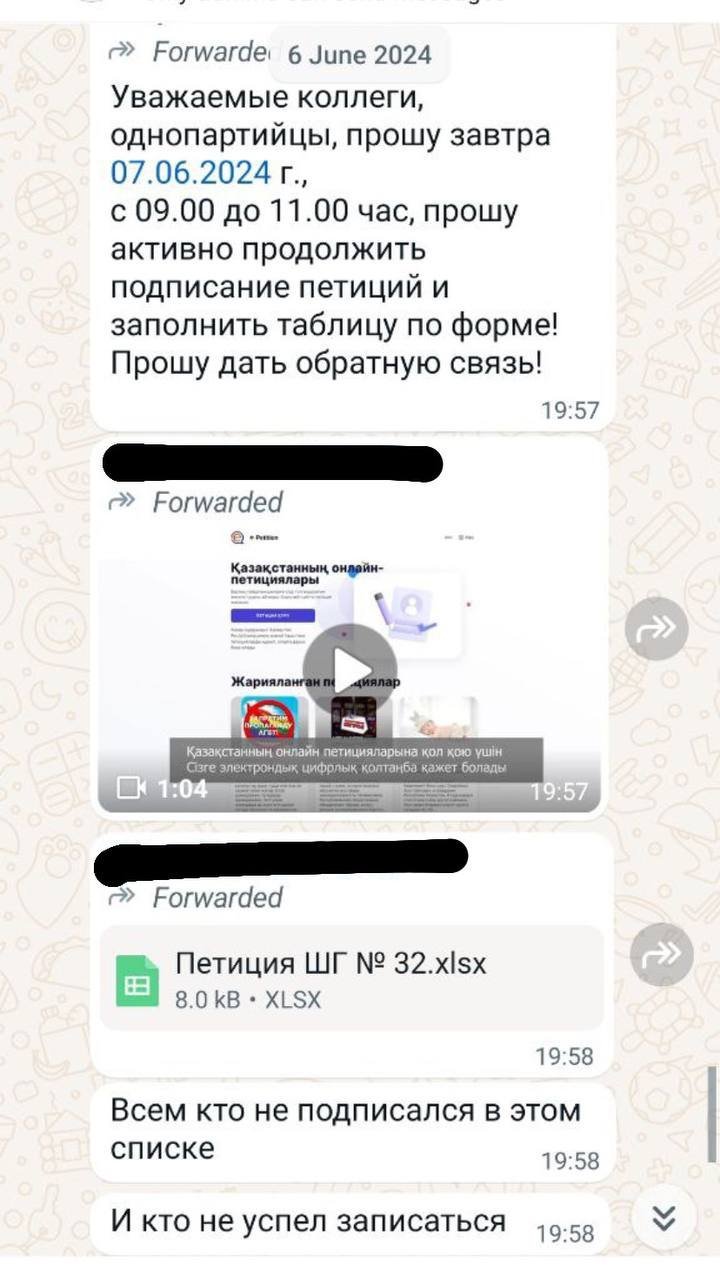
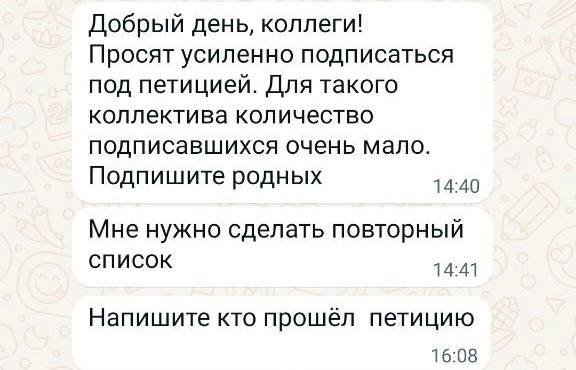
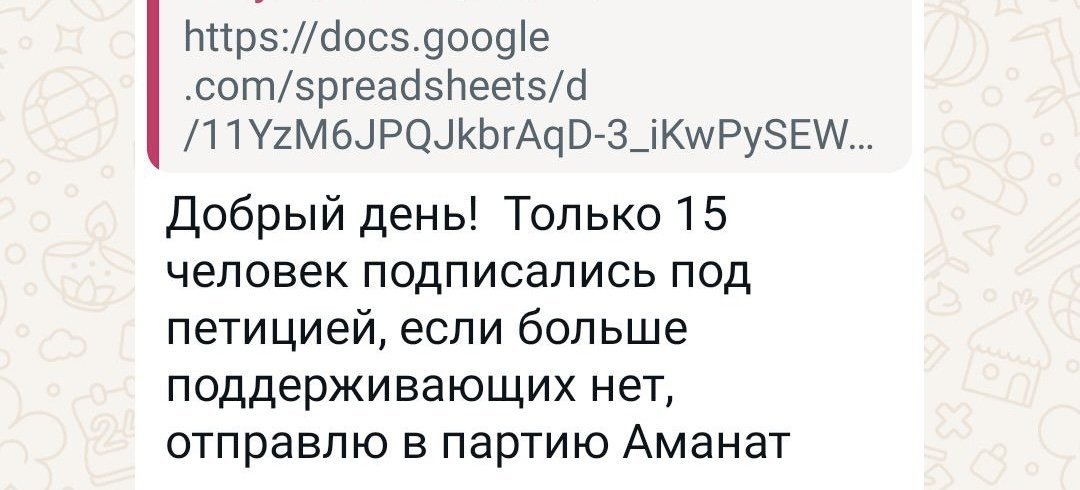
If you look at the examples of propaganda that are given, it is literally just the existence of LGBT people, and I think that my existence cannot force someone to change their orientation; it can simply become an impetus for understanding and accepting themselves, but this is definitely not an imposition of orientation.
The young woman says that all the messages sent to the chat sound as if there is no way that LGBT+ persons can be children and teenagers. The wording of “overt and hidden propaganda,” also indicated in the messages, is unclear.
Who's The Teacher?
She sent this from the AMANAT party, it was sent on their behalf because she is their representative at our school. I don’t know if this is connected, but not long before that we were forced to join the party, Nat shared.
We were unable to get a comment from the teacher. Nat explained that she couldn’t give us their contact information, she was scared.
Medical Institutions
The second case was shared with us by a nurse working in a state clinic in Astana. She also received a message in a work chat and agreed to provide screenshots. Out of personal safety, she did not name the organization:
The chat's name has been cut out because it contains the organization's and my department's names. I don’t know how my colleagues reacted; we didn’t discuss it, but I didn’t like these messages.
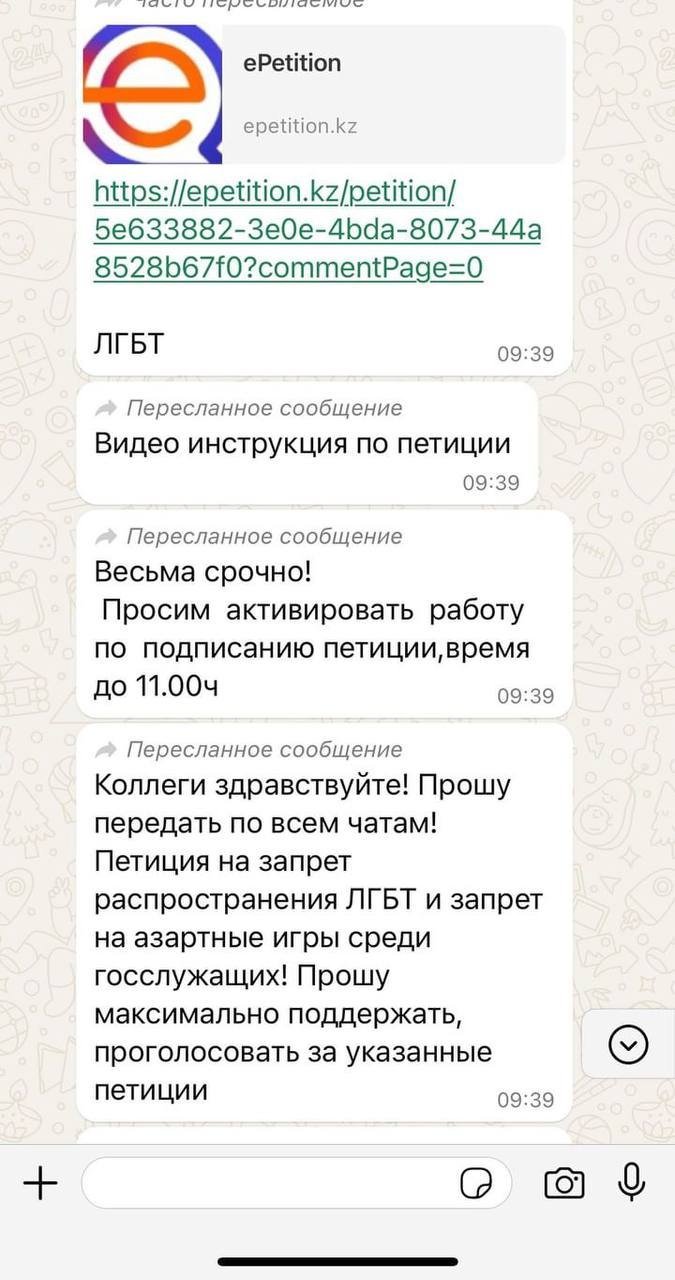
The nurse explained, “as far as she understood, this petition was distributed among all hospitals and clinics.”
Who Sent It?
Let's start by noting that under the AMANAT party, there are various councils in all regions, which include representatives of government agencies and NGOs. Our next speaker was in one of these groups and witnessed the distribution and call for voting.
We contacted the leaders of the party’s youth wing in different regions, asking which of them sent out the information and why. We wrote to leaders from the Qyzylorda region, North Kazakhstan region, Atyrau region, etc. We did not receive a response from any of them.
I have also seen similar send-outs sent to veterans and volunteer councils. There were cases where, with the help of their digital signature, they signed a petition, so to speak, helped the elderly, said Didar (name changed).
What do you think about the supposed “LGBT propaganda”?
It’s difficult for me to answer this question; I was not interested in LGBT topics in Kazakhstan; I know people and friends from this community. I read about their activities, but I didn’t notice any active propaganda or their agenda. In general, although I am not LGBT+, I just don’t like this method of lobbying a petition; I think someone’s interests are behind it, explained the young man.
Legal?
The Code of the Republic of Kazakhstan prohibits petitions that may entail a violation of human rights and freedoms, says Rustam Zhantasov, director of the Glotion Human Rights Center. According to him, such petitions increase stigma, violence, and discrimination against LGBTIQ+ people in Kazakhstan.
The rules proposing to introduce a ban on the ‘propaganda of non-traditional sexual relations’ violate Articles 19 (freedom of expression) and 26 (equality before the law) of the International Covenant on Civil and Political Rights, which Kazakhstan has ratified and pledged to comply with, says the director of the public Nomad Rights organization, Alisher Kozhagulov.
However, the Ministry of Information and Culture did not reject the petition's publication. Human rights activist Khalida Azhigulova, on the other hand, tried to create a petition but was not allowed to do so. The instruction summary stated that the petition subject cannot be matters that “could entail a violation of the rights and freedoms of man and citizen.”
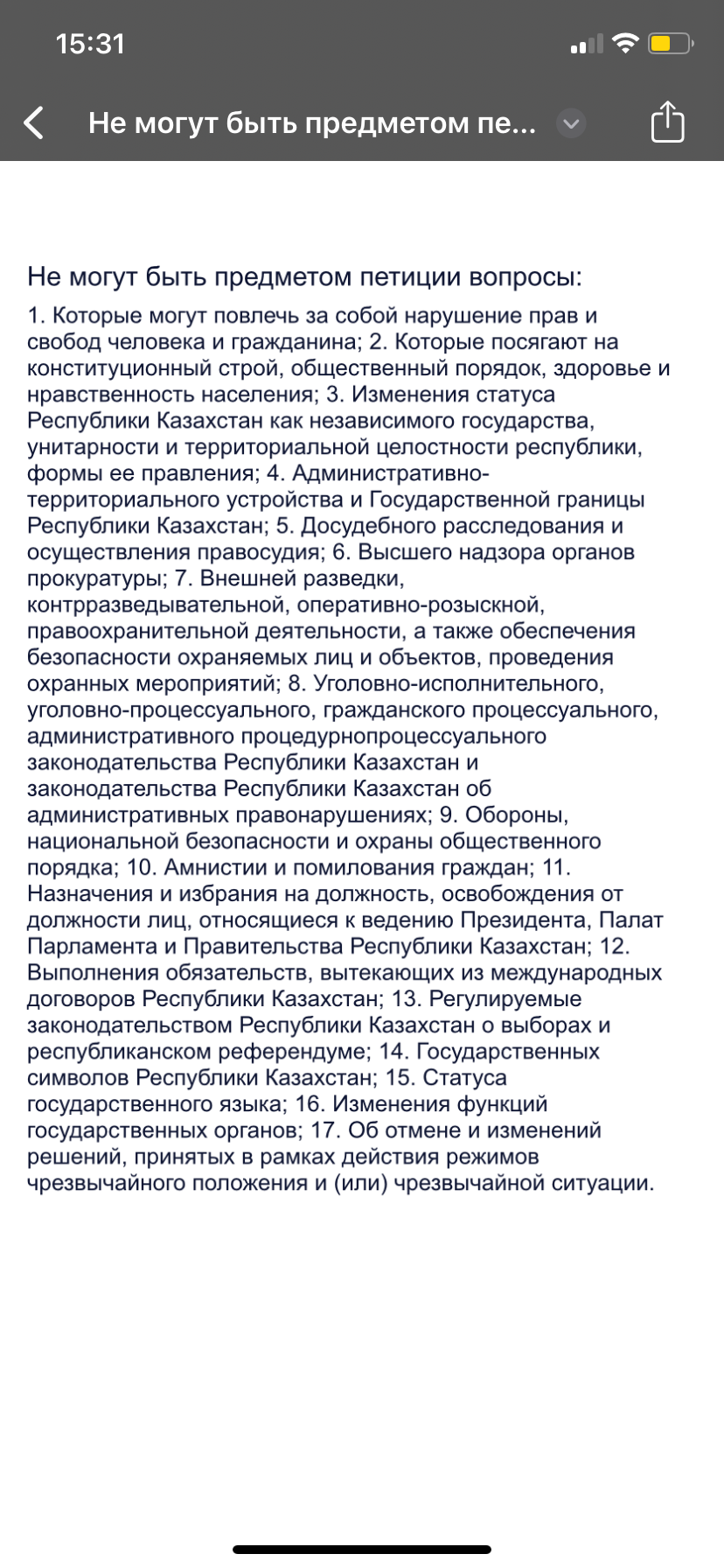
Government bodies and budgetary organizations, using their administrative resources, sent out and encouraged people to sign a petition among their employees and students. Forcing people to sign petitions, especially using administrative resources, is a violation of the principle of voluntariness,added Rustam Zhantasov.
What Can Activists Do?
They can leave their comments on the official online petition service, which must be considered when the petition is considered.
You can also try to become part of a separate commission or working group under the Ministry of Culture to consider the petition. It is worth filing a complaint against the government body for recognizing this petition, which is violating the law, with a demand to remove it from consideration. At the same time, administrative measures must be taken against the government body, says Alisher Kozhagulov.
Impact on Kazakhstan's Image
In 2024–2025, Kazakhstan will undergo the fourth cycle of the Universal Periodic Review at the UN Human Rights Council. The topics now being addressed in the petition will certainly be raised and discussed at the international level, which will affect Kazakhstan's image in terms of respect for human rights.
Such a legislative initiative is unconstitutional, anti-scientific, and generally ignorant. Science has proven that sexual orientation and gender identity are innate characteristics. They cannot be changed, just like ethnicity or race. Therefore, demanding a ban on propaganda of sexual orientation is as illegal as demanding that a person hide his ethnicity, says Khalida Azhigulova.
Can The Media Help?
Yes, publications in the media about the illegality of a petition can influence its consideration. A publication can create a public response, and more people will learn about violations of standards and legislation and be able to demand that the state cancel the petition, says Rustam Zhantasov.
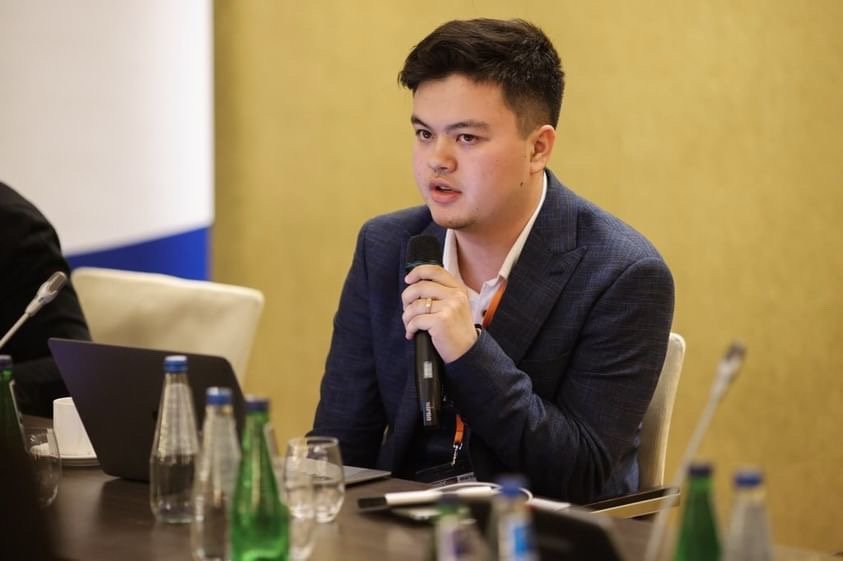
The petition was created by the head of the organization, the Union of Parents of Kazakhstan, Bagila Baltabayeva. This organization claims the law against family violence will allegedly lead to the removal of children from families, believes in the possibility of the US taking over the world, and opposes vaccinations.
The Parents' Union has also created a new petition for the repeal of “Saltanat's Law."
Original Author: Igor Grozny
DISCLAIMER: This is a translated piece. The text has been modified, the content is the same. Please refer to the original article in Russian for accuracy.
Latest news
- From Which Countries Do Most Ethnic Kazakhs Return?
- Asset Recovery: Schools in Turkestan and Aqmola Region villages to Be Built with Oligarchs' Money
- French Market Demonstrates Interest in Kazakhstani Farmers' Products
- Russia's Aircraft Shortage: Kazakhstan's Ministry of Transport Comments
- Qyzylorda Schoolgirl: Five Minors among Suspects
- An Essential EU Partner: Toqayev Invited to Prague
- Saran Residents to Have Heating Bills Recalculated
- Embezzlement Revealed in Aqtobe Region Nurseries
- Almaty: Criminal Scheme Involving Special Public Service Center Employees Exposed
- KTZ Discovers Ghost Employees in Branch
- How Ethnic Kazakhs Live in Afghanistan
- Almaty: Exhibition of Afghan Goods Held
- Kazakhstan: Archaeologists Found Artifacts Dating back 30,000 Years
- Aqylbek Muratbai Wrote Letter from Almaty Pre-trial Detention Center
- Week in Review: Announcements, Trade, and More.
- Export Bans: Kazakhstan Limits Timber, Russia Blocks Flowers
- Kazakhstan's Grain to Be Sent to China
- National Fund and ENPF Funds to Be Directed to Energy Development
- Yekibastuz: Company Previously Owned by Klebanov and Kan Intends to Raise Heat Tariffs by 228%
- Kazakhstan Set to Pull Price Limits for Fuel and Lubricants

